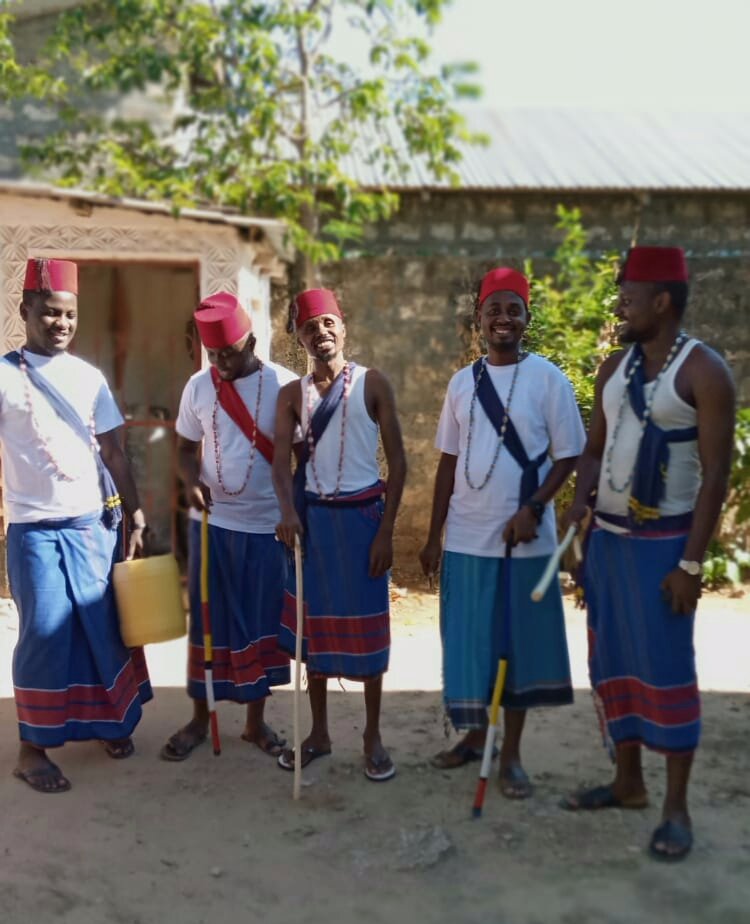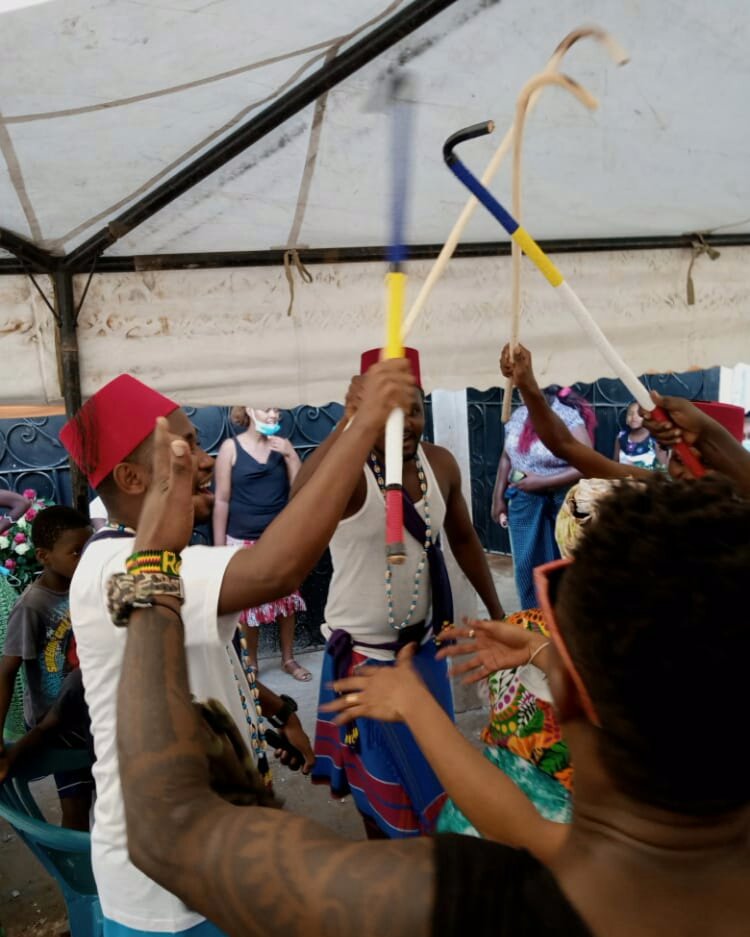Among the Mijikenda, for the bride and her family, the eve of the wedding is the highlight of proceedings. ‘Kuhirika sanduku’, ‘kufunga mlango’ and ‘kuhasa’ are the things happen on that day, which is mostly on Fridays these days. There has been dilution of the day’s events by intermarriages and mainstream religion resulting in variations but ‘kuhirika sanduku’ (kupeleka sanduku in Kiswahili) is one aspect that has relatively stayed intact. It is literally about the groom’s people bringing a suitcase to the bride’s home on the eve of the wedding.
Before being allowed in the home to present the suitcase, the bride’s aunts to confirm whether everything needed is there. The groom’s people will be met at the door and denied entry by the bride’s brothers and cousins, in a mock resistance until they have parted with some money. The groom’s best man will be the one to bargain on the groom’s behalf on the amount to part with but it generally ranges from Ksh. 2,000-Ksh. 3,000 for the average wedding. All this will go on while the women from both parties engage in songs to jokingly taunt each other’s ‘ushamba’ (backward) ways. One common song is “Mwatuchelewesha mwatuchelewesha…si makosa yenu ni kutoelewa na ushamba mwingi” (You are delaying us but it’s not your fault. It is because you do not understand/are illiterate and you are too backward). It could get tricky in a marriage between two different cultures because one can easily feel slighted by these words but it is just light-hearted banter.
Once the agreed figure is paid to the bride’s brothers and cousins, they allow access. This is met by cheer and celebration all around. The groom, best man and the accompanying party are then officially welcomed to the homestead as honoured guests and treated to plenty of food and drink. All this will be to pave the way for kuhasa (to bless). Kuhasa is the part of the ceremony where the bride’s parents, aunts, uncles and sometimes grandparents give advice and their blessings to the soon-to-be officially wedded couple. The kuhasa act involves the one blessing scooping water (used to commonly be palm wine back in the day) with a ‘kaha’ (coconut shell container with a wooden handle), sipping it and spraying it from their mouth to the chest and legs of the bride and groom to complete their blessings. Many years back, kuhasa would be complete with the bride having castor oil poured on her head and left to drip down. The castor oil was prepared some days earlier by women who will have abstained from sex through the whole process to avoid bringing misfortune to the couple.
Traditionally, kuhasa used to happen at dawn. The dawn timing was because after kuhasa, the bride, the groom and his people embarked on the journey to the groom’s home for a day of celebration there as well. Culturally, once kuhasa had been done by the bride’s family, the two were officially an item. These days it mostly happens in the early part of the night, to allow the groom and his people to go to rest and prepare for the ‘white wedding’ the following day. This was a take from a Kauma standpoint (my maternal side) and there could be slight variations from tribe to tribe among the 9 Mijikenda sub-tribes but the core characteristics are the same.
SUPPORT: We are a non-funded entity kept alive solely by our readers’ thirst for the undocumented and not adequately documented aspects of our past. The logistics of getting these stories can sometimes be a challenge. We would appreciate your support. To support Pwani Tribune’s history and culture research plus content creation…M-PESA till number: 8627478 Contact: +254726860693




